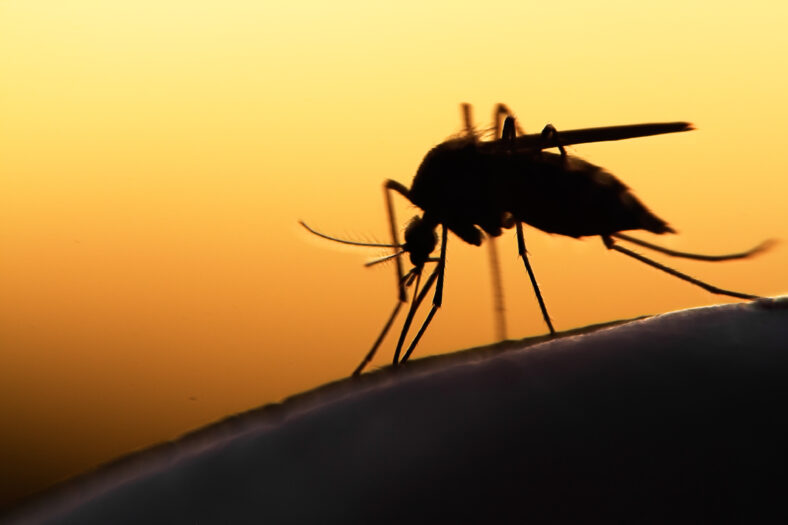Deaf Male Mosquitoes Won’t Mate, And This Could Hold The Key To Combating Disease Transmission

The whole courtship ritual for humans is a complicated affair, as it entails looks, personality, social cues, and the works.
But for mosquitoes, it’s much more simple. Mating occurs in midair for just a few seconds. All it takes to win over a male is the sound of a female’s beating wings.
So, scientists were stunned to find that tweaking just one small factor completely killed mosquitoes’ interest in mating.
Researchers from the University of California, Santa Barbara, created deaf mosquitoes and discovered that the males would not mate with the females, even when they were left alone together for days.
“The absence of a single gene, trpVa, produced this profound effect on mosquito mating behavior,” said Dhananjay Thakur, a co-lead author of the study and a postdoctoral scholar in the Department of Molecular, Cellular, and Developmental Biology.
The findings could help scientists manage disease transmission from certain mosquito populations that infect millions of people every year with disease-causing viruses.
Mosquitoes tend to swarm near areas with water or under streetlights on warm summer evenings, engaging in what is essentially a “mass mating event.” Scientists still do not fully understand how their reproductive abilities work.
For species like Aedes aegypti, their mating sessions start with females flapping their wings at 500 Hz. When males hear this, they will take off, buzzing at about 800 Hz. They meet up in midair for a brief moment and then go their separate ways.
Males are constantly looking for new partners, but females that have successfully mated usually won’t do so again. The research team believes that hearing plays a crucial role in mosquito mating behavior.

Sign up for Chip Chick’s newsletter and get stories like this delivered to your inbox.
They examined the auditory neurons located at the base of the insect’s antennae in a structure known as the Johnston’s organ.
The antennae help mosquitoes sense their environment. In the new study, the team focused on a sensory channel called TRPVa and the corresponding gene, trpVa.
They knocked out this gene in some male Aedes aegypti mosquitoes, resulting in deaf insects that did not respond to sound. When the study authors placed the deaf males in chambers with the females, nothing happened.
So not only is hearing necessary for males to be able to mate, but it also appears to contribute to their libidos. On the other hand, deaf females still had some desire to mate. The females only had half as many auditory neurons as males.
“I think the reason why our major finding is so shocking is because, in most organisms, mating behavior is dependent on a combination of several sensory cues,” said Emma Duge, a co-lead author of the study. “The fact that taking away a single sense can completely abolish mating is fascinating.”
The researchers think that the importance of hearing in mating can be applied to most other species of mosquito. The results of the study have implications for disease prevention.
The mosquito Aedes aegypti infects around 400 million people per year, and an estimated 100 million of them develop diseases like yellow fever, zika, and dengue. To reduce the rates of infection, one possible technique is to release sterile males to mate with females.
The females won’t actually produce any offspring and keep the population suppressed. The new findings could make the technique more successful.
The study was published in the Proceedings of the National Academy of Sciences.
More About:News





